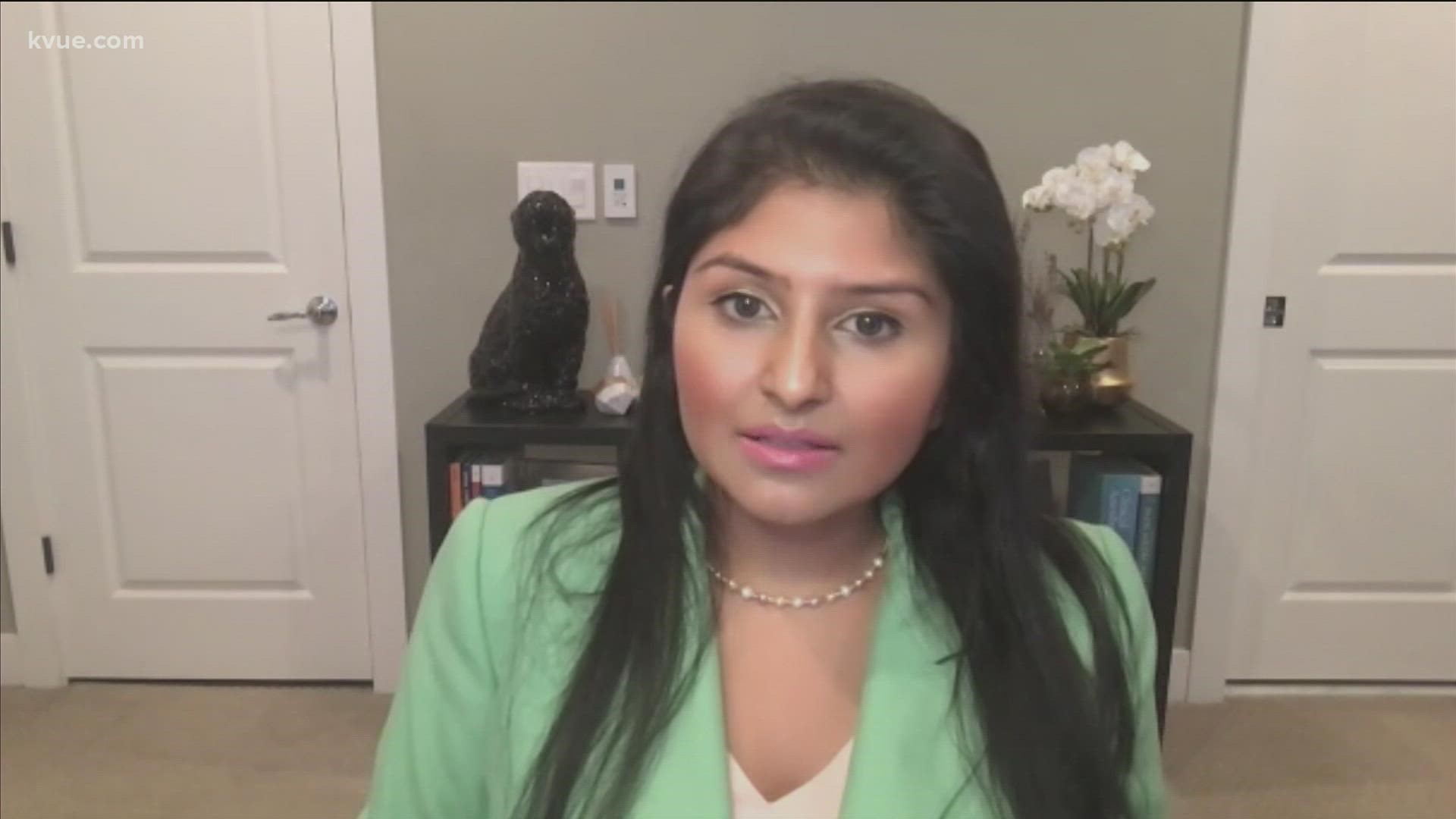AUSTIN, Texas — The KVUE Defenders are working to answer your questions about COVID-19 and the omicron variant.
We spoke with an expert who has experience working with COVID-19 patients. Dr. Shravani Durbhakula works at Johns Hopkins School of Medicine and she's kind enough to join us to answer some of your questions.
“If I have had COVID-19 and have now tested negative, but my spouse still has COVID-19, will I get infected again or am I immune as of now?"
Dr. Durbhakula: Good question. It's nuanced. So there are several parts to that answer. The first question is, first issue rather, is the timeline. So how long has it been since you were infected and your spouse was infected? What's that timeline there? And if it's been a long time, so it's been three months or more than that, then you have to wonder if the immunity that you might have gained from natural infection or even from a vaccination is starting to decline now.
Assuming that you both got infected around the same time, then the questions kind of change. Now the question is, are you immunocompromised? Are, for instance, are you getting cancer treatment or are you diabetic? If you're immunocompromised or perhaps if you're elderly, you might not mount a natural immune response that's as great as some other people. And so, if you guys got infected around the same time, you know, a healthy person would ideally mount a decent immune response, starting at about day three of infection, that would allow them to have a fair degree of immunity and therefore not get reinfected, at least not immediately. If there is immunocompromised, like I said, or if someone is unvaccinated or not boosted, in that case, the immunity from natural immunity isn't as reliable.
So is it possible to get reinfected in that scenario? Yes. But is it unlikely? Yes, it's unlikely.
Now, the third thing is a question of which strain where you actually infected with and which strain was your partner infected with. So if you were both infected with the same strain, then great, those antibodies that you develop should be good to protect you both. But if you had delta and your partner had omicron, then the antibodies that you mount are going to be different and you're not necessarily going to be immune to getting infection from each other. And so that is the really complicated but hopefully helpful response.
“When should we retest after having COVID?”
Dr. Durbhakula: So this is also a really great question. When you have COVID-19, basically the PCR is your most sensitive test. That means it's going to be the best test at telling you if you have an infection. That being said, in terms of getting out of isolation or figuring out if you're not infectious anymore, the PCR is not a great test because for up to 90 days after your infection, your PCR is going to test positive even if you're not infectious. And the reason is that a PCR may actually detect a live virus or even dead virus. And so it's going to detect even virus that has no clinical implications, and it's not going to get anyone else sick.
That being said, a rapid test can be helpful. So a rapid test will be positive during the infectious period. And if it is positive, it's very likely that you are still infectious and you should isolate.
So a rapid test might be helpful right away to give you some information about if you're going to leave isolation. But a PCR is really helpful in the beginning to figure out if you have infection, but not so helpful after beyond that, because it's going to be positive for 90 days.
“After having breakthrough COVID-19, when can a person get the booster shot?”
Dr. Durbhakula: So the booster shot, you can get it as soon as you're done having symptoms, so that means, you know, no more fevers, no more cough, no more of those upper respiratory symptoms, no more aches. Whatever symptoms you are having when they're gone and you're out of your quarantine period, then you're good to get the booster shots.
Some people are asking, should you even get the shot because you're going to have this natural immunity? But natural immunity is unpredictable, and it varies from individual to individual. And so, the booster shot is far more predictable in terms of the immune response that it's going to offer. So therefore, even if you did get COVID-19, the booster is a good idea because it will be a more predictable immune response for you and it's going to give you better protection.
PEOPLE ARE ALSO READING:

